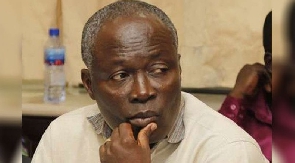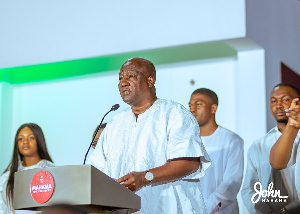Lecturer of professional ethics at the Methodist University College, Dr Osei Bonsu Owusu says the monthly salary of GHc75,000 paid to former chief executive officer of COCOBOD by the previous board amounted to causing financial loss to the state.
He argued that it is time implementation of universal salary structure was applied across all sectors in order to end the practice of Board of Directors fixing salary and allowances for chief executive officers of state institutions.
According to the new Board Chairman of COCOBOD, Hackman Owusu-Agyeman, documents available to him suggested that the under fire former CEO Dr. Stephen Opuni-Frimpong was on a whooping 75,000 Ghana Cedis salary monthly.
Figure that the former Water Resources Works and Housing Minister under the erstwhile Kufour administration said will be investigated for further clarifications. Meanwhile, speaking on Onua FM’s morning show ‘Yen Nsem Pa’, Dr Osei Bonsu expressed worry over how government institutions are fast becoming extensions of political outfits, adding that those institutions have now gained notoriety in the ‘rub my back let me rub your back’ syndrome.
A situation he said if not checked will not only entrenched perception of corruption in public institutions but bring the country down to its knees.
“I was surprised when I read that CEO is taking such amount, why should the practice be that the board determines the salary and allowances of the CEO, then the latter does same for the board, this must stop. But the problem is some of those institutions have become politically tainted.”
He questioned why the system would not allow Fair Wages and Salary Commission to determine emoluments and allowances of CEOs and board of directors. “I want to know for instance how the old board of COCOBOD arrived at that 75,000 Ghana Cedis and what went into taking such a decision, we must know.
That decision has caused financial loss to the state.”
Click to view details



General News of Wednesday, 29 March 2017
Source: 3news.com

















